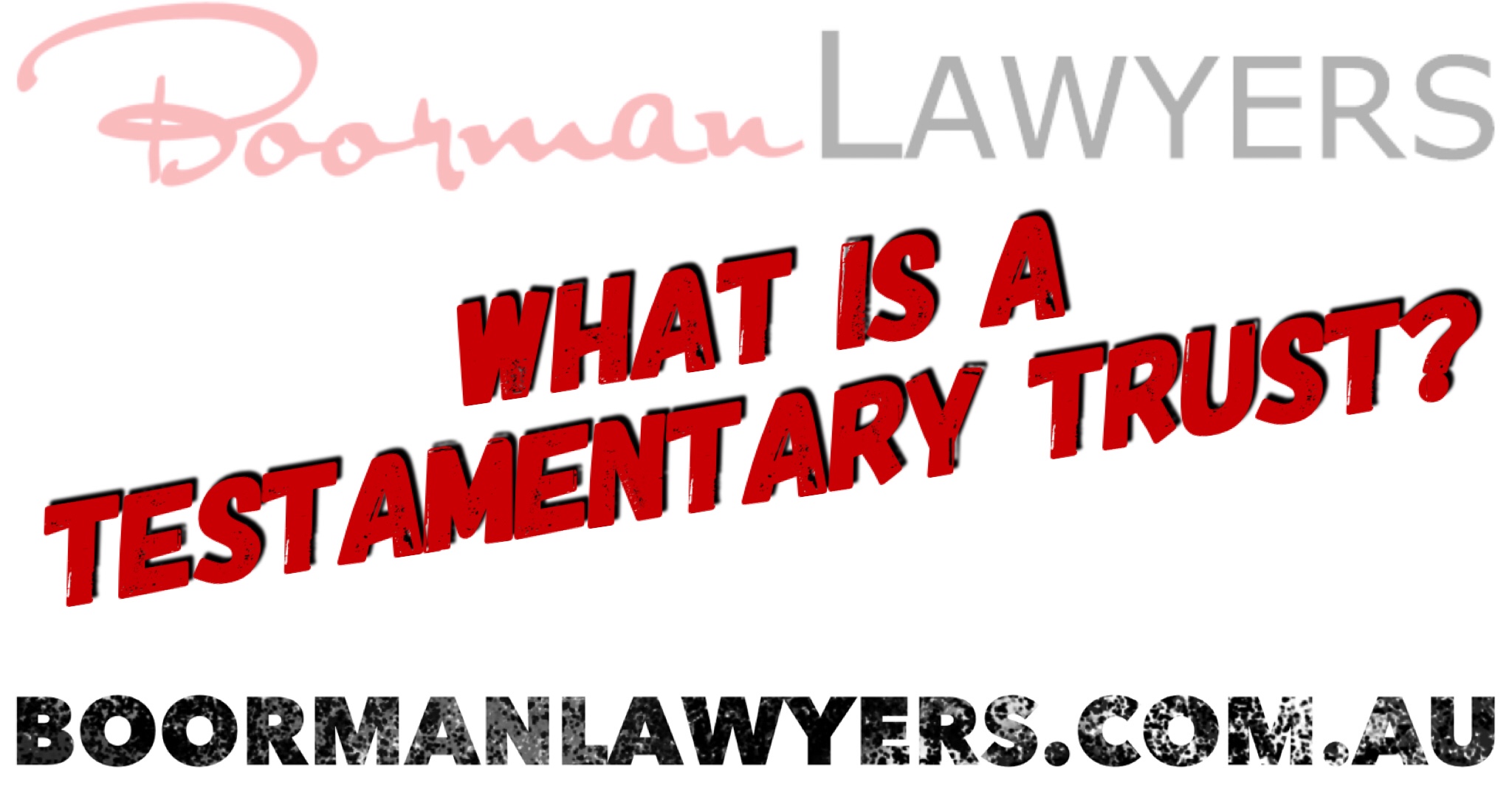When you consider your estate planning, you can decide not only to whom you wish to leave your property, but also the way in which you wish to do so. For example, a couple may wish to leave the majority of their assets to their spouse and then ultimately to their children once they both pass away. This can be achieved by the couple each preparing a Will that leaves their assets to their spouse outright, provided that if their spouse does not survive them, then to their children in whatever proportions they so determine in the Will.
Whilst the above essentially achieves their desired outcome, it does not do anything to protect their surviving spouse and children from current or future creditors, or provide them with any effective tax planning strategies. A better option is to incorporate testamentary trusts in each of their Wills. The assets can then be left on trust for the benefit of the surviving spouse and / or any children.
What is a Testamentary Trust?

A testamentary trust is a trust that is created by virtue of a Will. It is similar to a discretionary or “family” trust in that it is controlled by an appointed trustee for the benefit of the beneficiaries. In a family scenario, it is common for the surviving spouse (with or without other individuals) being appointed as the trustee, to, in effect, control the investment and distribution of the assets held in the trust. Upon the death of that surviving spouse, the children can replace their parent as trustees and take over control of the testamentary trust.
It is common in the above scenario that the surviving spouse and the children be named as beneficiaries. The beneficiaries are essentially those individuals who may, at some point in time, receive a benefit from the trust, however have no fixed entitlement, and therefore are unable to demand that anything be paid to them at a given time. The distribution of any of the trust fund is completely at the discretion of the trustee, appointed by the will maker.
What are the benefits of incorporating Testamentary Trusts?

Incorporating testamentary trusts into your Will provides significant tax planning opportunities and asset protection for your beneficiaries.
As the beneficiaries (in the above scenario, being your spouse and children) have no fixed entitlement to the funds held in the trust, those funds are, in most instances, protected from potential creditors in the event they were exposed to liability (such as bankruptcy).
In addition to the asset protection advantages, there are significant taxation planning benefits to leaving your estate to your beneficiaries on testamentary trust, rather than as an outright gift. Distributions to minors (such as your children, grandchildren and even great-grandchildren) are taxed at the normal marginal tax rates. This means that each minor can receive up to approximately $18k in distributions tax free, each financial year.
In contrast, where proceeds of the estate are paid directly to the beneficiaries, rather than on testamentary trust, all of the income derived on the investment of those funds (for example, rent paid from leasing out an investment property) will be taxed in the hands of the beneficiary at their income tax rate, which could be up to 45%.
It is worth noting that other discretionary or “family” trusts do not offer the same taxation benefits. If distributions are made to minor beneficiaries of a “family” trust, they are instead taxed at the highest marginal rate.
Finally, leaving the proceeds of the estate on testamentary trust can afford the will maker more control over how those proceeds are used. To achieve a greater degree of control over the investment and distribution of the proceeds, the will maker can appoint multiple trustees of the testamentary trust, where decisions can be made by a majority or unanimously (however the will maker decides).
How long do the benefits last?
As a testamentary trust continues for 80 years (unless vested sooner), multiple generations can benefit from your effective estate planning.
Is it more expensive to create a Will that incorporates Testamentary Trusts?
Whilst the professional fees for creating a Will with testamentary trusts are greater than creating a Will that does not, the tax savings in just the first year will, in most instances, far exceed the additional cost of having the Will prepared.
What Next?
Contact us to discuss how we can put an effective estate plan in place for your family.
***
Speak to our Gold Coast Estate Lawyers Ph: 1300 941 900
 Our Gold Coast Estate Lawyers can be contacted at:
Our Gold Coast Estate Lawyers can be contacted at:
Boorman Lawyers NSW & QLD Solicitors
